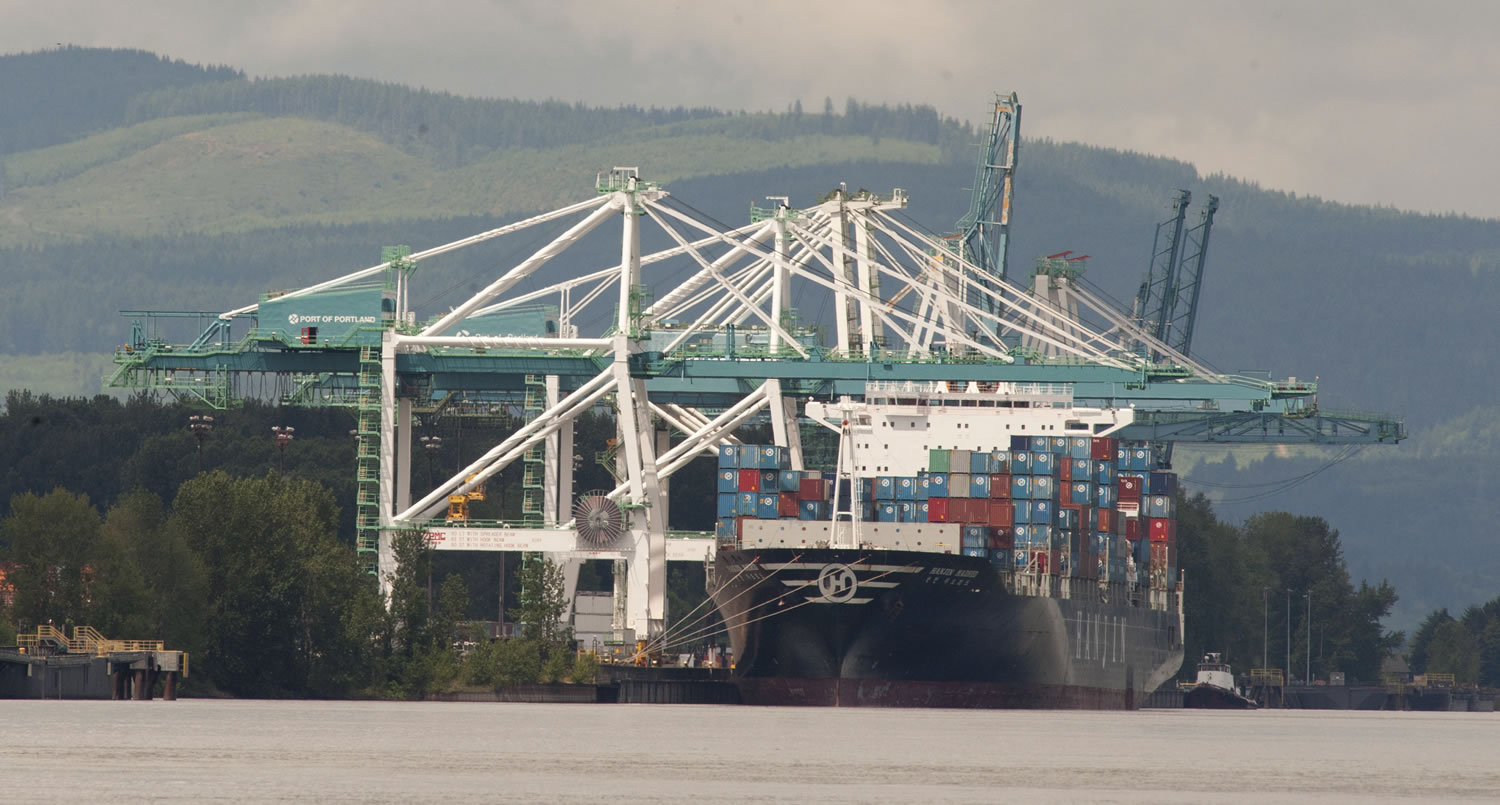PORTLAND — Gov. John Kitzhaber on Friday tried to head off a walkout at the Port of Portland that could mean the port’s first longshore union work stoppage in decades.
The governor told both sides that he expects them to reach agreement in last-ditch talks set for Saturday, The Oregonian reported.
Marine terminal security guards represented by the International Longshore and Warehouse Union plan to strike Sunday because contract talks that began in June 2011 have failed to yield an agreement. The longshoremen who load and unload ships are expected to honor the picket line, effectively closing three terminals.
Representatives of both the port and the union told the governor there was room for a deal, Kitzhaber spokesman Tim Raphael said.
The port has faced a triple play of labor problems this year.
State mediator Robert Nightingale was set to join talks Saturday in a final effort to avoid a work stoppage that would disrupt the flow of shipping containers, auto imports and other cargo.
The strike possibility has led some businesses to use ports on Puget Sound, and shipping lines were evaluating whether to bypass the city. When ships are diverted and cargo rerouted, that adds costs, and potentially harmful delays for imports or exports of perishable or seasonal items.
The long-range concern is some shippers might permanently skip the port because of the labor issues. Portland’s Terminal 6 is by far the smallest of the West Coast’s six container-shipping ports, and it’s already at a disadvantage with other Pacific ports because it’s about 100 miles from the ocean.
“As long as it’s a temporary disruption and we don’t lose any shippers, or we don’t lose any manufacturing expansions as a result of their fear that they can’t move their goods, we’ll be OK,” state economist Mark McMullen said. “As long as it’s short term, it should just be a disruption and not a disaster.”
The sides agree on most aspects of a contract, but workers want an assurance their jobs won’t disappear if terminal operators or carriers want to hire their own, lower-cost security personnel. Port officials believe companies would be more likely to do business in Portland if they’re not handcuffed to job guarantees.
“They’d probably call it a job guarantee; we characterize it as an outsourcing problem,” union spokesman Craig Merrilees said.
The pending strike is just one of three separate labor conflicts at the Port of Portland.
The first began this summer when the ILWU and the International Brotherhood of Electrical Workers clashed over which union should have the job of plugging in and unplugging refrigerated shipping containers. The National Labor Relations Board and a federal judge concluded that longshoremen engaged in slowdown tactics during the dispute, causing truck traffic to be backed up for more than a mile.
Two major shipping lines that use Terminal 6 — Germany’s Hapag-Lloyd AG and South Korea’s Hanjin — briefly diverted ships during the tension. Though the NLRB eventually concluded the work belongs to the electrical workers, the longshore union continues to fight for the jobs.
Separately, in a standoff that involves several ports, the union contract between longshoremen and companies that operate grain terminals on the Columbia River and Puget Sound expired Sept. 30. The companies have made what they say is their last offer, and are awaiting a response.
A strike or lockout would disrupt trans-Pacific grain shipments, affecting U.S. farmers exporting wheat, corn and soybeans to Asia.
But the current focus is on 25 security guards from Local 28, and how longshore workers would respond to their walkout.
In a failed attempt to win an emergency injunction preventing a strike, port lawyers said this week that, in 2011, marine cargo at Portland Harbor generated $6.2 billion in total economic activity in the region and supported about 18,000 jobs. They warned that farmers wouldn’t be able to export perishable products during a strike and mills that depend on steel scrap might have to close.
“The port believes that a strike would have a great negative impact on our local economy, and we’re going to continue all efforts to avoid that strike, including mediation, arbitration and all the routes we have,” said Kama Simonds, a port spokesman.
Merrilees said the union is also anxious to get a deal done, but the guards feel the port’s offer “is the beginning of a race to the bottom.”
“The port is a source of good-paying, blue-collar jobs that are increasingly hard to find,” he said. “The port should be standing up and advocating for those jobs.”



